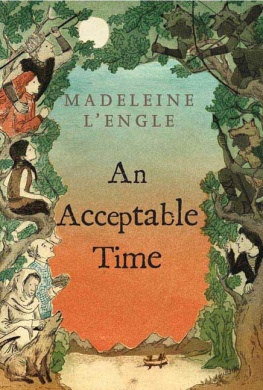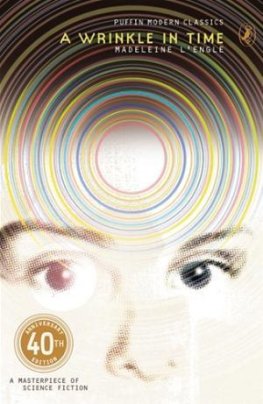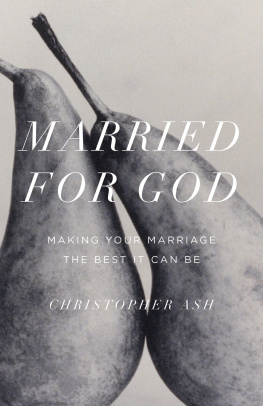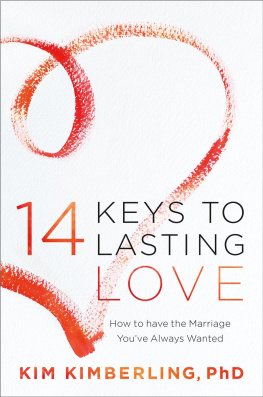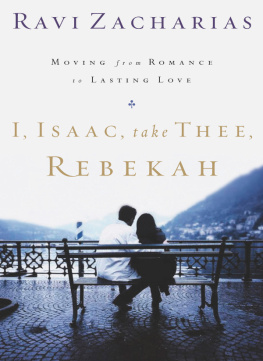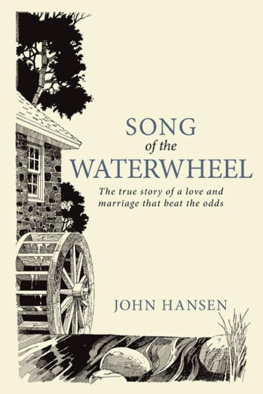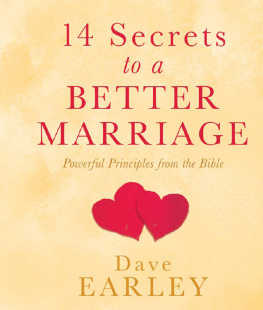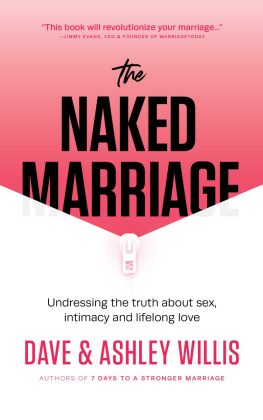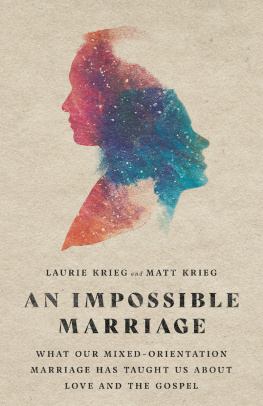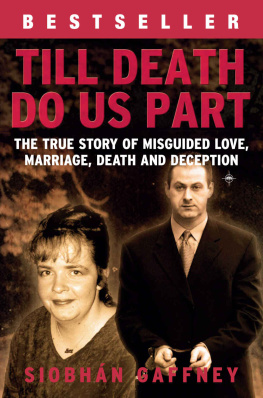Madeleine L’Engle - Two-Part Invention: The Story of a Marriage
Here you can read online Madeleine L’Engle - Two-Part Invention: The Story of a Marriage full text of the book (entire story) in english for free. Download pdf and epub, get meaning, cover and reviews about this ebook. year: 1989, publisher: HarperOne, genre: Science. Description of the work, (preface) as well as reviews are available. Best literature library LitArk.com created for fans of good reading and offers a wide selection of genres:
Romance novel
Science fiction
Adventure
Detective
Science
History
Home and family
Prose
Art
Politics
Computer
Non-fiction
Religion
Business
Children
Humor
Choose a favorite category and find really read worthwhile books. Enjoy immersion in the world of imagination, feel the emotions of the characters or learn something new for yourself, make an fascinating discovery.
- Book:Two-Part Invention: The Story of a Marriage
- Author:
- Publisher:HarperOne
- Genre:
- Year:1989
- Rating:4 / 5
- Favourites:Add to favourites
- Your mark:
- 80
- 1
- 2
- 3
- 4
- 5
Two-Part Invention: The Story of a Marriage: summary, description and annotation
We offer to read an annotation, description, summary or preface (depends on what the author of the book "Two-Part Invention: The Story of a Marriage" wrote himself). If you haven't found the necessary information about the book — write in the comments, we will try to find it.
The story of a marriage of true minds and spirits--a brilliant writers tribute to lasting love.
Two-Part Invention: The Story of a Marriage — read online for free the complete book (whole text) full work
Below is the text of the book, divided by pages. System saving the place of the last page read, allows you to conveniently read the book "Two-Part Invention: The Story of a Marriage" online for free, without having to search again every time where you left off. Put a bookmark, and you can go to the page where you finished reading at any time.
Font size:
Interval:
Bookmark:
Two-Part Invention
The Story of a Marriage
Madeleine LEngle
for Hugh
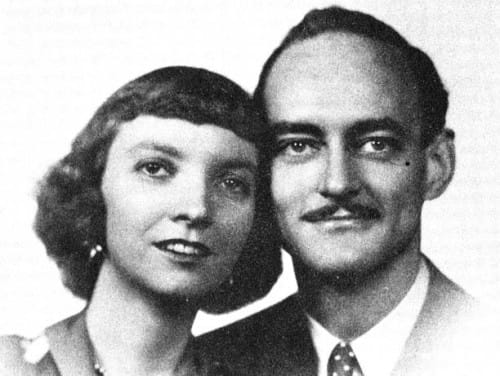
Madeleine LEngle and Hugh Franklin shortly after their marriage in 1946.
I
PRELUDE
One
Crosswicks is a typical New England farmhouse, built sometime in the middle of the eighteenth century, so it is well over two hundred years old. Its square central section has been added to haphazardly over the years, white clapboard somehow tying it all together, so that the house rambles pleasantly and crookedly. A dropped ball will roll right to the central chimneys, and the bookcases weve built in are masterpieces of non-alignment.
Crosswicks is a symbol for me of family and community life, of marriage in general and my own marriage in particular. It stands staunchly on the crest of one of the Litchfield hills in the northwest corner of Connecticut and through the centuries has withstood the batterings of many stormsblizzards, hurricanes, even a tornadoof love, anger, birth, death, tears, laughter.
Perhaps it is a particularly potent symbol for me because, until the house came to us over forty years ago, I had never lived in a real house, much less had one of my own. I was born on the asphalt island of Manhattan and lived for my first twelve years in an apartment. I had my own small back bedroom, its one window looking onto a court, where the stories of other city dwellers were sometimes enacted for me behind unshaded windows or on the rooftop of a building lower than ours. I was an only child, with an ailing father, and lived a solitary life. My parents had dinner at eight oclock in the evening, and I had my meal on a tray in my room and ate happily, with my feet on the desk and a book on my chest.
It was a totally different childhood from that of my husband, Hugh Franklin, who had a much more typically American upbringing, growing up in Tulsa, Oklahoma, in a comfortable, unpretentious house on a pleasant, tree-lined street of similar houses filled with professional father, stay-at-home mother, and many other children on the block to play with.
How different were Hughs and my early years; each of us was given different treasures, different sorrows. I grew up in a world of books, music, theatre, a small world where the artist was the norm, rather than the odd one out.
Hugh grew up in a world where artists were thought to belong to a half-world of permissiveness and promiscuity. His father was a distinguished lawyer, and there were books in the house, though not many, according to the standards of my parents. The First Baptist Church was central. Regular churchgoing was compulsory. To be a Christian was essential.
My mother and father were Episcopalians, but being a Christian was secondary (if it was thought about at all) to being a good and faithful singer, or painter, or writer.
Totally different worlds.
My father was a writer, a journalist and foreign correspondent and news analyst, though mustard gas in the trenches of World War I stopped much of his traveling. My parents friends were painters, sculptors, singers, actors, composers. The world of the nineteen-twenties seemed a world of parties. A terrible war had ended. People played almost frantically. Mother and Father were either dressing to go out to a party or the theatre or the opera or they were preparing to have friends come in.
I was on the fringe of that world, a child isolated in my own room, but aware of and taking for granted the music, the laughter, the conversation going on in the rest of the apartment.
My parents had been married for nearly twenty years when I was born, and although I was a very much wanted baby, the pattern of their lives was already well established and a child was not part of that pattern. So I had my own, with which I was well content, reading and rereading, writing stories and poems; illustrating my stories with pencil and watercolors; playing the piano; living far too much in an interior dream world. But that interior dream world has stood me in good stead many times when the outer world has seemed to be collapsing around me.
After my childhood in New York came a time of wandering about Europe, trying to find air clean and pure enough for my fathers damaged lungs. World War I, which had little place in Hughs early life, remained paramount in mine, along with the fear of war.
What I, overprotected by my solitude rather than my parents design, did not realize was that the terrible Wall Street crash of 29 had affected everyones lives. More imminent was the fact that my father was in the hospital with pneumonia, that my mother could not hide that she was frantic with anxiety. Then the crisis was over and he was home, but nothing was the same.
We were moving, leaving New York and moving to Europe. The doctors had recommended a sanatorium in Saranac, but after the crash, with its consequent Depression, my parents could not afford Saranac. The standard of living in the French Alps, where the air was clean and clear, was much lower than the standard of living in the United States. The Depression had closed down most of the great resort hotels. There were no beautiful people and the world was a war away from the jet set. Most of the available pensions around the emptied resort hotels had no indoor plumbing and no running water. But the air was the clean, dry air the doctor had recommended. If we stayed in New York my father would be prone to another attack of pneumonia, which might well be lethal. We had to move away from everything I had known.
How my parents must have missed the opera, the theatre, the parties that had been so much a part of their lives in New York. But they shielded me in their Olympian way from feelings which must have bordered on desolation.
Our first home after we sailed from New York was, strangely enough, a chteau. My parents were planning to have the summer in the French Alps with another family, also devastated by the crash. Mother told me later that the real-estate agent resisted even showing them the chteau, it was in such terrible condition, but they insisted, and fell in love with its ancient charm. And it was cheapcheap because nothing much had been done to it since the eleventh century. Well, there was an ancient, pull-chain water closet, but I remember the water for the day being brought to the bedrooms in big china pitchers which had matching washbowls. There was a strange bathroom with an enormous bathtub set in a mahogany base. Under the tub was a firebox by which the water was heated. Of course, the firebox made the tub too hot to sit in, so we used it only for occasional cold baths.
Two young women from the village helped out, accustomed to cooking with no running water, no refrigerator, nor, for that matter, a stove. There was a fireplace with a spit suitable for roasting an ox. It is impossible for me to understand what total dislocation this must have represented for my parents. They had not been rich, but they had been surrounded and nourished by the richness of New Yorks artistic community. Suddenly to be totally uprooted and set down in a tiny provincial village without even a radio for music must have been shocking.
I spent the summer dreaming and wandering through the dusty rooms of the chteau. The great day for the grownups was Friday, when the horse-drawn fish cart clattered across the cobblestone streets of the village. Not only would there be fish for dinner, but the fish were kept fresh on ice, and my parents were given enough ice so that on Friday evenings they had dry martinis before dinner.
Meanwhile, in Tulsa, Oklahoma, my as-yet-undreamed-of husband was experiencing the Depression in a very different way. His lawyer father was counsel for one of the big oil companies. Like many others in those plush days before the crash, he had been buying stocks on the margin, for himself, and for friends. The Franklin family lived comfortably, and Hughs older brother and sister were sent to college. Hugh, much younger, was still at home, about to enter high school, when the crash came. His father lost everything. Unlike some businessmen, he did not jump out his office window or declare bankruptcy. Instead, he spent the next quarter of a century working, and at the time of Hughs and my marriage in 1946 he had just finished paying back to his friends and acquaintances every penny he had lost in investing for them in the stock market. A man of great integrity and honor.
Next pageFont size:
Interval:
Bookmark:
Similar books «Two-Part Invention: The Story of a Marriage»
Look at similar books to Two-Part Invention: The Story of a Marriage. We have selected literature similar in name and meaning in the hope of providing readers with more options to find new, interesting, not yet read works.
Discussion, reviews of the book Two-Part Invention: The Story of a Marriage and just readers' own opinions. Leave your comments, write what you think about the work, its meaning or the main characters. Specify what exactly you liked and what you didn't like, and why you think so.


